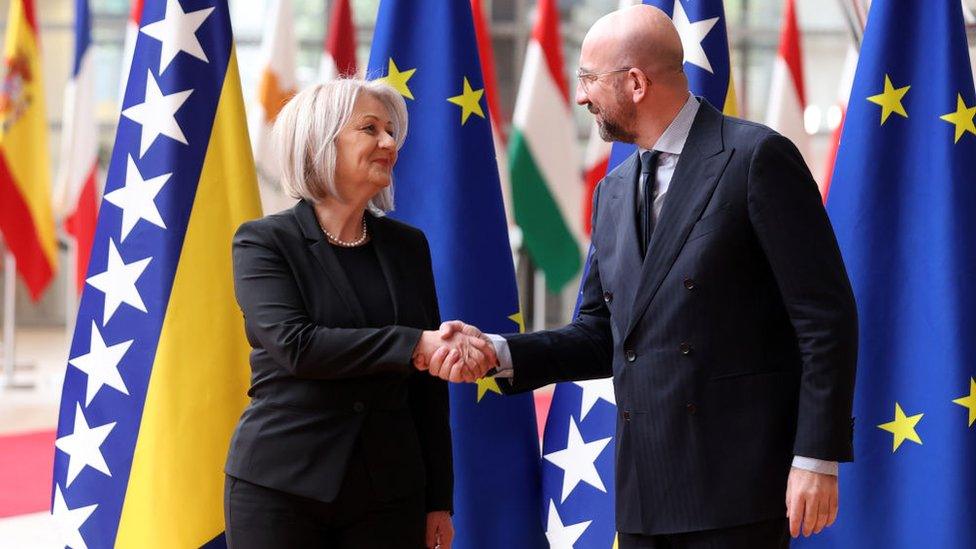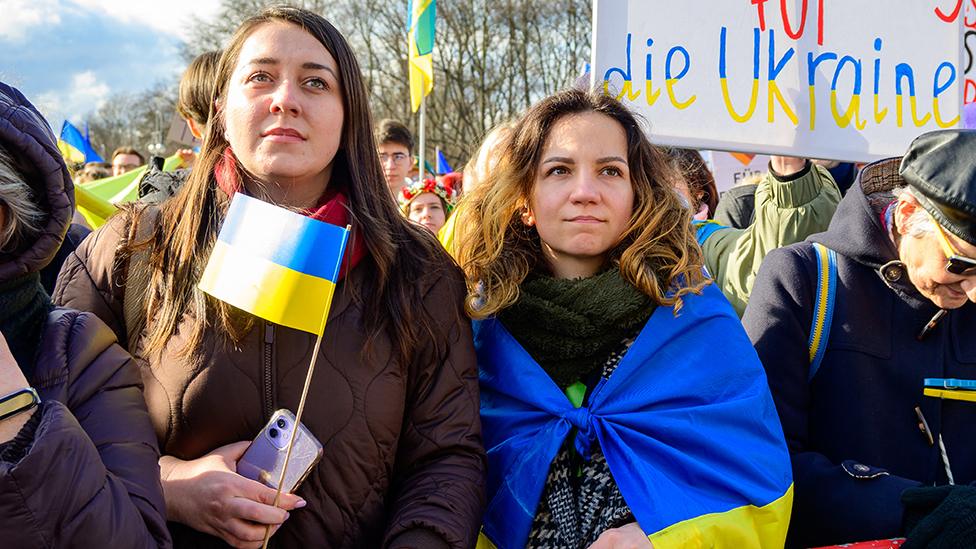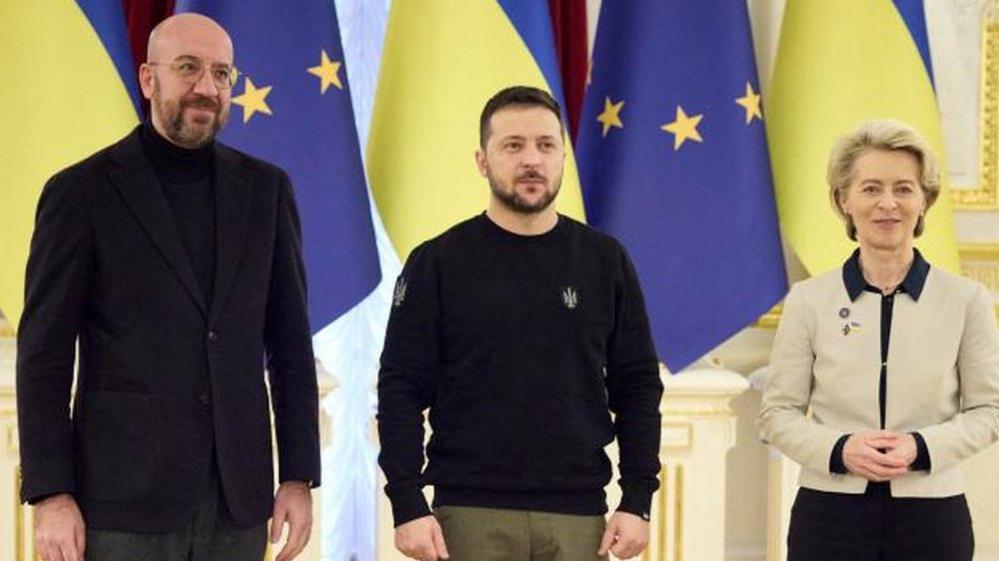EU: Bosnia and Herzegovina to begin talks to join bloc
- Published

Council president posted a photo of himself with the Chairwoman of the Council of Ministers of Bosnia and Herzegovina
The Balkan country of Bosnia and Herzegovina is to begin EU membership negotiations, eight years after it formally applied to join the bloc.
The European Commission - the EU's executive arm - last week recommended that talks should begin.
EU leaders have now given the plan their approval.
European Council president Charles Michel congratulated the country's leaders, telling them: "Your place is in our European family."
He posted a photo of him shaking hands with Borjana Krišto, Chairwoman of the Council of Ministers of Bosnia and Herzegovina.
"Today's decision is a key step forward on your EU path. Now the hard work needs to continue so Bosnia and Herzegovina steadily advances, as your people want."
Shortly afterward, Ms Krišto expressed her thanks, saying: "Mutual determination and effort have resulted in achieving the necessary level of compliance with the requirements and criteria."
Germany's chancellor, Olaf Scholz, described the thumbs-up for Bosnia as a "good message" for the entire region.
Croatia's prime minister Andrej Plenković said it was "a historic day for our neighbouring and friendly Bosnia and Herzegovina!"
Bosnia has been waiting a long time to receive the green light for talks.
In 2003, the EU produced the Thessaloniki Declaration, saying they wanted Western Balkan countries to join them. Since then, only Croatia has completed the complex accession process.
After applying for membership in 2016, Bosnia was granted candidate status in October 2022.
Over the past year, it has been passing laws relating to priorities set out by the Commission that focus on democracy and the functioning of the state, the rule of law, fundamental rights and reform of public administration.
Some of these laws include clamping down on money laundering, conflicts of interest, and even approving negotiations on an agreement with EU border agency Frontex.
Bosnia is still ethnically and politically divided, even decades after the 1992-95 war that tore the country apart, leaving more than 100,000 people dead and millions displaced.
It could be many more years until the country formally joins the EU, as they would be required to implement more economic and democratic reforms.
Albania, Georgia, Kosovo, Moldova, Montenegro, North Macedonia, Serbia, Turkey and Ukraine have all applied to join the bloc and are at various stages of the application process.
The war in Ukraine has sharpened the EU's awareness that it needs to show commitment to the Western Balkans.
Related topics
- Published10 March 2024

- Published14 December 2023
